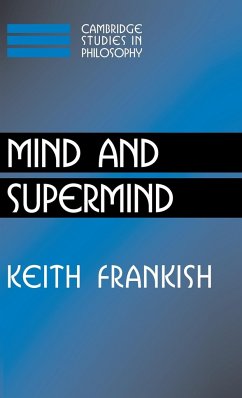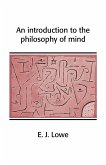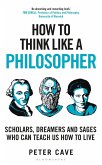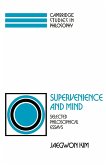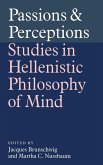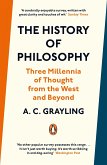Short description/annotation
Offers a new perspective on the nature of belief and the structure of the human mind.
Main description
Mind and Supermind offers a new perspective on the nature of belief and the structure of the human mind. Keith Frankish argues that the folk-psychological term 'belief' refers to two distinct types of mental state, which have different properties and support different kinds of mental explanation. Building on this claim, he develops a picture of the human mind as a two-level structure, consisting of a basic mind and a supermind, and shows how the resulting account sheds light on a number of puzzling phenomena and helps to vindicate folk psychology. Topics discussed include the function of conscious thought, the cognitive role of natural language, the relation between partial and flat-out belief, the possibility of active belief formation, and the nature of akrasia, self-deception, and first-person authority. This book will be valuable for philosophers, psychologists, and cognitive scientists.
Table of contents:
Preface; A note on grammar; 1. Introduction; 2. Divisions in folk psychology; 3. Challenges and precedents; 4. The premising machine; 5. Superbelief and the supermind; 6. Propositional modularity; 7. Conceptual modularity; 8. Further applications; Conclusion.
Hinweis: Dieser Artikel kann nur an eine deutsche Lieferadresse ausgeliefert werden.
Offers a new perspective on the nature of belief and the structure of the human mind.
Main description
Mind and Supermind offers a new perspective on the nature of belief and the structure of the human mind. Keith Frankish argues that the folk-psychological term 'belief' refers to two distinct types of mental state, which have different properties and support different kinds of mental explanation. Building on this claim, he develops a picture of the human mind as a two-level structure, consisting of a basic mind and a supermind, and shows how the resulting account sheds light on a number of puzzling phenomena and helps to vindicate folk psychology. Topics discussed include the function of conscious thought, the cognitive role of natural language, the relation between partial and flat-out belief, the possibility of active belief formation, and the nature of akrasia, self-deception, and first-person authority. This book will be valuable for philosophers, psychologists, and cognitive scientists.
Table of contents:
Preface; A note on grammar; 1. Introduction; 2. Divisions in folk psychology; 3. Challenges and precedents; 4. The premising machine; 5. Superbelief and the supermind; 6. Propositional modularity; 7. Conceptual modularity; 8. Further applications; Conclusion.
Hinweis: Dieser Artikel kann nur an eine deutsche Lieferadresse ausgeliefert werden.

